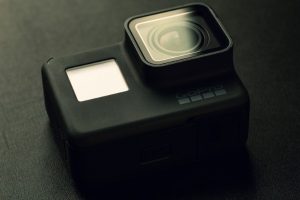
There are pros and cons to body-worn cameras. And whether you are a member of law enforcement or a criminal defendant wondering how this work, it is important to know about them.
The Benefits of Body-Worn Cameras on Law Enforcement
There are numerous benefits to law enforcement and the public. Here we will go over each benefit and the party they represent.
1. The benefit to Both – Improving Public Safety
When you know you are on camera, you behave differently. It does not matter if you are a police officer or civilian, there is something about knowing you are being filmed that makes you be on your best behavior. That means law enforcement may use fewer instances of excessive force, suspects will not badger or attack officers, and equipment like tasers may even be used less. This is because a body-worn camera would determine if the use of that device was warranted based on actions between law enforcement and the victim at the time.
2. The benefit to the Defendant – Improving Officer Accountability
Police body-worn cameras have audio and visual recordings. They are dispatched to a facility, where the video can be recalled and reviewed. Officers can be held accountable for what is found on that footage. For example, if an officer claims that they shot a suspect out of self-defense, the camera footage may contradict that statement.
Likewise, officers will obey rules and criminal procedures when they know that their video footage can contradict their statements. This includes everything from conducting a search to pulling over someone for a DUI, to even interviewing a suspect.
For example, an officer pulls you over under suspicion of a DUI. The footage shows that you are not acting inebriated at all. However, the officer says that you failed the field sobriety test and does not take your breathalyzer reading at that time, but instead arrests you for a DUI. Reviewing the footage reveals that you did not fail the field sobriety test and that the officer had no probable cause to arrest you.
3. The benefit to Police – Reducing False Accusations of Misconduct
Just like a body camera will prevent law enforcement from making false claims about a suspect, it can work the other way. A suspect would not be able to accuse an officer of misconduct in hopes that their case would be dismissed, especially if the footage shows otherwise.
4. The benefit to Law Enforcement – Allow Officers to Invade One’s Privacy
While the footage might benefit law enforcement, a body-worn camera greatly invades a person’s right to privacy. Not only are they being recorded without their consent, but that footage can include their home, vehicle, and surroundings that they may not wish to share publicly.
This fear can force some defendants to feel weary answering police questions – even when they are innocent. It might also create a sense of distrust between the public and law enforcement.
Furthermore, the camera footage can expose a person’s deficits publicly, such as a person who has a mental illness, autism, or developmental delays.
In some states, this footage is a public record, which means anyone can access it with a request – only further invading a person’s privacy.
5. The benefit to Both – Can Help Improve Officer Training and Interactions with the Public with New Policies
One of the biggest benefits of body-worn cameras is what can be learned afterward. These cameras, whether exposing police misconduct or civilian misconduct, help improve the training and procedures that are in place to protect both sides. New laws might be enacted based on the data obtained from these cameras, and cases seen in court may drive new public policies.
Can You Use Body Camera Footage to Defend Yourself in Court?
Policy body camera footage can help your criminal case, and a good attorney would petition the court for law enforcement to release that footage.
Some ways that your attorney might use that footage as part of your defense include:
- Showing that you are innocent. While rare, officers may claim that they found evidence on you or caught you in the middle of a crime when you were not doing anything wrong. In this case, the body camera footage might actually prove that you were not doing anything to prompt law enforcement to arrest you, or even catch law enforcement planting evidence.
- Highlighting police misconduct during your arrest or the investigation. The body camera footage might show law enforcement using excessive force or even outright battery. In this case, your attorney might use this to show that you were mistreated during your arrest, which violates your Constitutional rights.
- Proving that you were not given your Miranda rights before making a confession. When law enforcement is questioning you and looking for incriminating evidence, they must advise you of your Miranda rights by giving the Miranda warning. The footage could prove that you were not given those rights; therefore, anything you said or any evidence stemming from what you said would be inadmissible in court.
- Proving that law enforcement lacked probable cause. The biggest defense from bodycam footage is showing that law enforcement did not have probable cause to arrest you or stop you in the first place. Without probable cause, evidence obtained might be inadmissible in court.
Contact a Defense Attorney Today
If you were arrested recently, and the officer wore a body camera, you need a defense attorney to petition that evidence and review it. The team at New Mexico Criminal Law Offices uses body camera footage along with other evidence to mount a powerful defense for every client we represent. Whether you are facing DUI charges or something more serious, you need someone on your side fighting for your rights.
To get started, call our office to schedule a case evaluation or contact us online with your legal questions.

